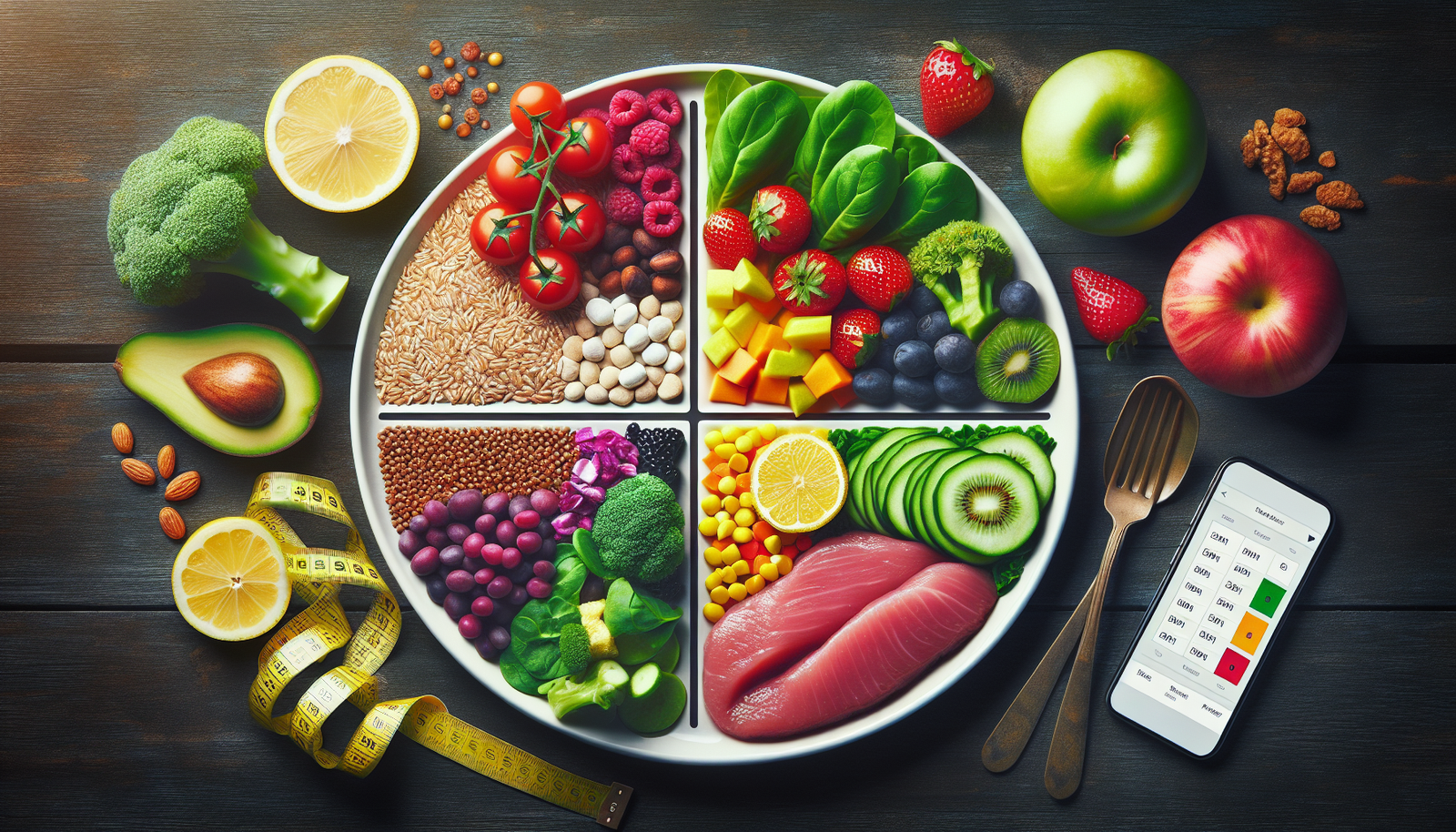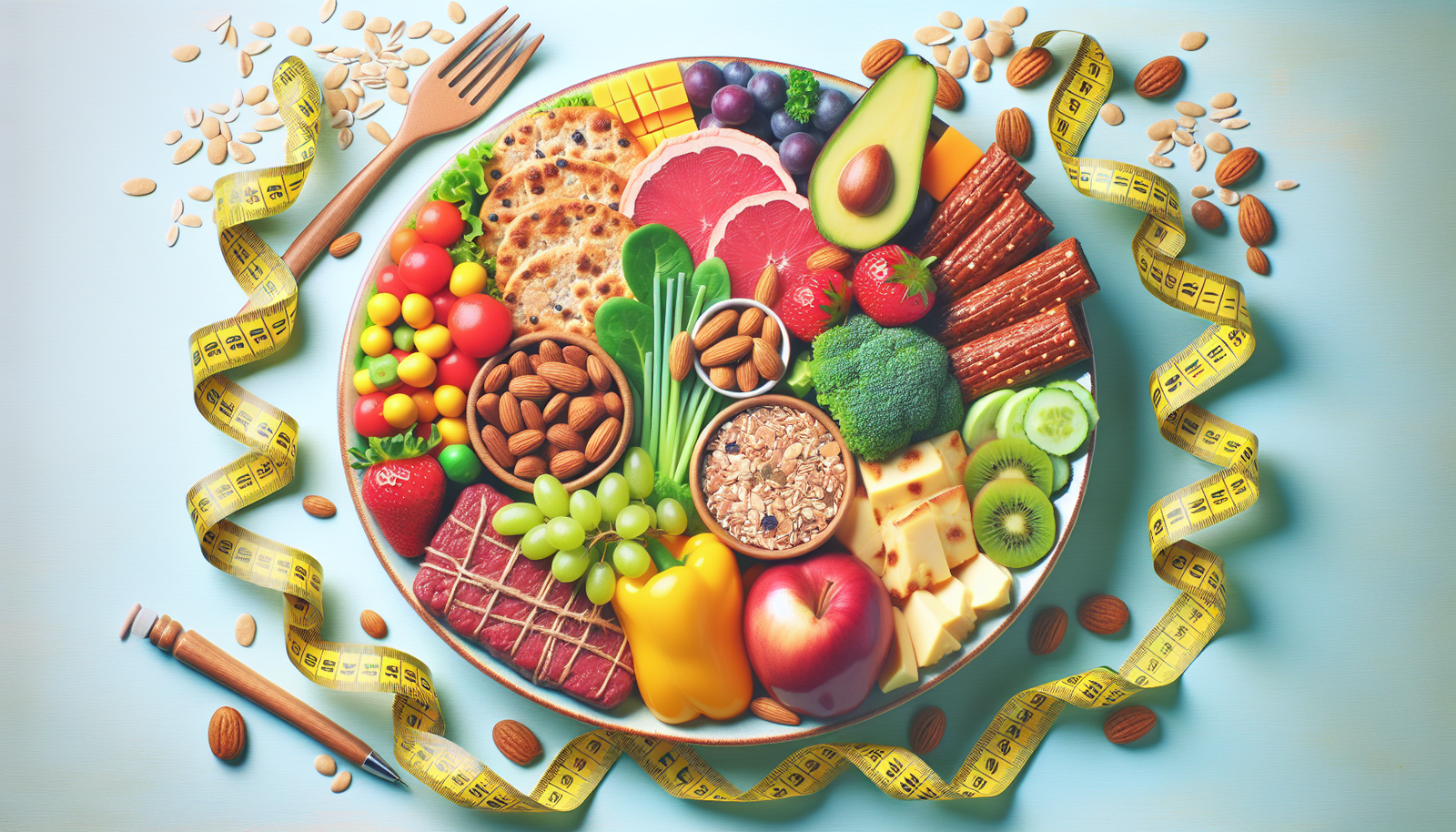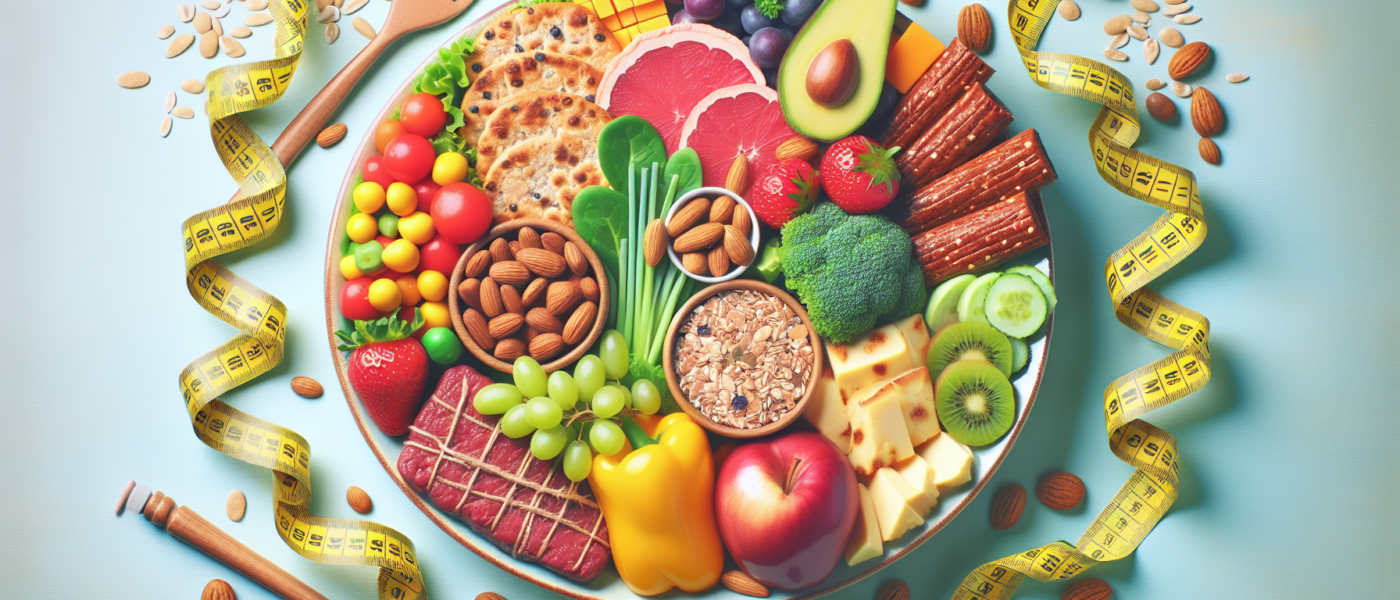Unveiling the Link Between Nutrient Intake and Weight Loss
Nutritional choices play a crucial role in your weight loss journey, with their impact extending beyond simple calorie counting. “Unveiling the Link Between Nutrient Intake and Weight Loss” not only demonstrates the need for a healthier lifestyle in general, but also underscores the significance of mindful consumption for effective weight management. This article is sure to offer key insights and lifetime health advice for those seeking assistance in managing their weight. If you’re looking to take control of what you eat and turn your life around, your voyage towards a healthier you begins right here. Buckle up and get ready to explore the strong correlation between nutrient intake and weight loss.

Understanding the Basics of Weight Loss
Weight loss all boils down to how your body uses energy. It’s a complex interplay of metabolism, nutrition and physical activity. Let’s unravel the basics of it.
Role of metabolism in weight loss
Your metabolism determines how many calories you burn throughout the day. It’s like a furnace that keeps burning fuel non-stop. The faster your metabolism, the more calories your body uses to carry out its functions. That’s why those with a speedy metabolism may need more calories to maintain their current weight. In contrast, a sluggish metabolism can make weight loss more challenging because your body requires fewer calories to keep going.
Importance of calorie deficit in weight loss
From the perspective of weight loss, you could think of your body as a bank account of calories. If you consume more calories than you burn, the ‘extra’ gets stored as fat. Therefore, to lose weight, you need to create a calorie deficit, which means you burn more calories than you eat. This forces your body to tap into those fat stores as an alternative energy source, resulting in weight loss.
Role of Different Nutrients in Weight Loss
To achieve a caloric deficit while still meeting your body’s needs, it’s important to understand the role of different nutrients in your diet.
Understanding macronutrients: proteins, carbohydrates, fats
Macronutrients are the nutrients your body needs in large amounts. Proteins are fundamental for muscle repair and growth and can also help control your hunger. Carbohydrates provide energy, while fats help absorb vitamins and cushion your organs. All three macronutrients have a place in a balanced diet, but their proportions might vary depending on your weight loss goals.
Understanding micronutrients: vitamins and minerals
On the other hand, vitamins and minerals, or micronutrients, are required in smaller amounts, but they’re no less pivotal. They play vital roles in energy production, immune function, blood clotting and bone health, just to cite a few examples.
Protein Intake and Weight Loss
Protein is often hailed as the king of nutrients when it comes to weight loss, and for good reason.
Importance of protein for muscle building and weight loss
Protein helps build and repair tissues, including muscles. Since muscles are metabolically active, fostering muscle growth can boost your metabolism and perk up your calorie expenditure. Plus, protein-rich foods can make you feel fuller for longer, helping you eat less without feeling starved.
Recommended protein intake for a balanced diet
The latest dietary guidelines suggest that adults get 10-35% of their day’s calories from protein. Choosing lean sources of protein like poultry, fish, beans or tofu can help you stay within this range without overdoing calories.
Carbohydrate Intake and Weight Loss
Often demonized in the weight loss world, carbohydrates are not inherently bad. It’s more about the type and amount you eat.
The role of carbohydrates in weight loss
Carbs are your body’s preferred energy source. Cut them too low and you might struggle with low energy, clouded thinking and intrusive food cravings. The caveat: not all carbs are equal. Those from whole, fiber-rich foods can keep you satiated and stable your blood sugars, while refined carbs can spark cravings and energy crashes.
Ideal carbohydrate level in a weight loss regime
The dietary guidelines suggest that carbs make up 45% to 65% of your total daily calories. So even if you’re cutting calories for weight loss, carbohydrates should still play a role.

Fat Intake and Weight Loss
Don’t shy away from fats, thinking they’ll make you fat. It’s more nuanced than that.
The role of fat in weight loss
Dietary fat is needed for many of your body’s functions including the absorption of certain vitamins. Plus, like protein, it can help regulate your appetite by slowing digestion and making foods more satisfying.
Recommended fat intake for a balanced diet
How much fat does a balanced diet require? The general guideline advises getting 20% to 35% of daily calories from fat, predominantly unsaturated fats from foods like avocados, nuts, seeds, oily fish and olive oil.
Vitamin and Mineral Intake and Weight Loss
Weight loss isn’t just about calories. You also need plenty of vitamins and minerals to keep your body functioning well while you’re shedding pounds.
Role of vitamins and minerals in weight loss
Vitamins and minerals are essential for converting food into energy, repairing bodily tissues and keeping your metabolism ticking – all crucial when you’re trying to slim down.
Understanding the vitamins and minerals essential for weight loss
Among others, B-vitamins are integral for energy metabolism; iron is needed for moving oxygen in the body; magnesium plays a vital role in nerve and muscle function; vitamin D and calcium relate closely to bone health and might influence weight regulation.
Effects of Overconsumption of Nutrients
Like anything else in life, too much of a good thing is often detrimental.
Risks of excessive protein intake
Consuming more protein than your body can use can lead to kidney damage, dehydration, and in some cases, increased risk of heart disease among others.
How much carbohydrate or fat affects the weight loss process
Loading up on too many carbs, particularly the refined kind, can lead to weight gain and blood sugar spikes. Overdoing fats, especially saturated and trans fats can raise your cholesterol levels and thereby, your risk of heart disease.
Balancing Nutrient Intake for Weight Loss
Hence, it’s important to strike a balance when it comes to nutrient intake.
Understanding the concept of a balanced diet
A balanced diet doesn’t mean rigidly allotting one-third of your plate to each macronutrient or meeting every vitamin and mineral requirement to the decimal point every day. Rather, it means eating a variety of foods that cover your nutrient needs over time, while keeping your calorie budget in mind.
Tips for maintaining a balanced diet for weight loss
Try to fill half your plate with veggies or fruits. Devote one quarter to lean protein, and make the last quarter a combo of carbs and fats. For additional nutrition, sprinkle in some nuts, seeds, or avocados on top.
Influence of Nutrient Absorption on Weight Loss
It isn’t just about what you eat but also how your body processes these nutrients.
Factors influencing nutrient absorption
Several factors influence nutrient absorption such as your gut health, food preparation, and potential nutrient interactions. For example, vitamin C can enhance iron absorption, while dietary fat helps your body uptake fat-soluble vitamins.
Effect of nutrient absorption rate on weight loss
When your body absorbs nutrients slowly, you feel satiated for longer. This can limit food cravings and keep your calorie intake under control, aiding in weight loss.
Role of Physical Activity in Nutrient Intake and Weight Loss
Physical activity is another critical piece of the weight loss puzzle.
Understanding the relation between nutrient intake, calorie burn and weight loss
Exercise doesn’t just burn calories. It also affects your nutrient needs. Physical activity can increase your protein requirements for muscle repair and growth. Also, if you’re a frequent exerciser, you might need more carbs for energy and optimal performance.
Practical ways to increase physical activity in your daily routine
Aim for 30 minutes of moderate activity most days. This doesn’t have to be a grueling gym session. It can be as simple as a brisk walk, a dance class or gardening. Every bit helps!
So there you have it! Weight loss isn’t a one-size fits all solution. It’s a personalized trade-off between your nutrient intake and energy expenditure, with the balance tilted slightly towards burning more than you consume. Remember, slow and steady not only wins the race, it also keeps the weight off!

